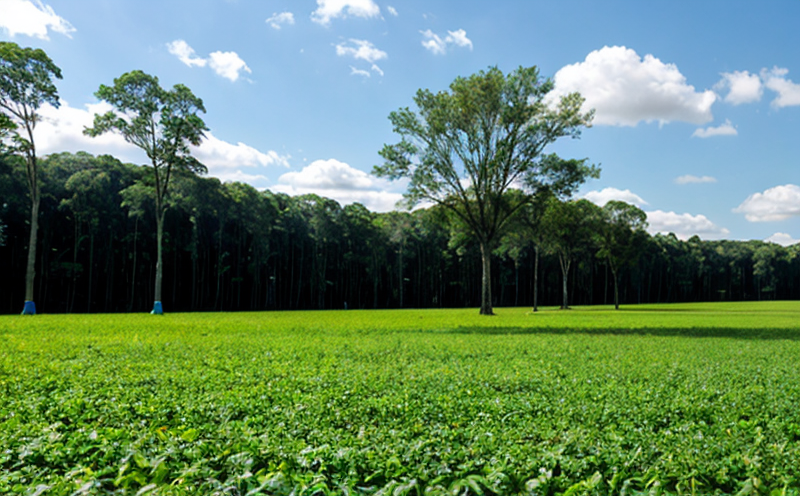Circular Economy Compliance Testing in Products
In today’s fast-evolving business landscape, sustainability and circularity are more critical than ever. The concept of a circular economy emphasizes the continuous flow of resources through production processes to minimize waste and promote reuse. For consumer products manufacturers, this translates into reducing environmental impact by designing products that can be recycled or reused at the end of their lifecycle.
Our Circular Economy Compliance Testing in Products service ensures that your company adheres to the latest standards for sustainable practices while maintaining product quality and safety. This testing is essential not only for compliance with regulations but also for enhancing brand reputation and meeting consumer expectations.
The circular economy model requires a holistic approach, considering all stages of a product’s life cycle from raw material extraction through manufacturing, use, disposal, and final recycling or repurposing. By conducting rigorous testing at each stage, we help you identify areas where improvements can be made to enhance sustainability without compromising on performance.
Our testing covers various aspects including recyclability assessment, biodegradability evaluation, energy consumption analysis during manufacturing processes, packaging material compatibility checks, and more. Each test is designed to provide actionable insights that drive innovation towards greener solutions.
The circular economy approach also extends beyond just the product itself; it includes supply chain management practices such as responsible sourcing of raw materials and efficient logistics systems. Our experts work closely with you throughout this process to ensure seamless integration into your operations.
By partnering with us for Circular Economy Compliance Testing in Products, you gain access to industry-leading facilities equipped with state-of-the-art equipment capable of simulating real-world conditions accurately. This ensures reliable results that are both accurate and repeatable – crucial factors when making decisions about product design changes aimed at improving sustainability.
We understand that every organization has unique needs regarding their circular economy initiatives, which is why our services are tailored specifically to meet those requirements. Whether you need help identifying opportunities for improvement or implementing new sustainable practices across your entire value chain, we have the expertise needed to assist you."
Applied Standards
| Standard | Description |
|---|---|
| ISO 14001:2015 Environmental Management Systems – Requirements with guidance for use | This international standard provides the framework for organizations to manage their environmental impact and improve their overall sustainability performance. |
| ASTM D6954-18 Standard Practice for Determining Biodegradability of Solid Waste in a Marine Environment | This practice describes how to determine if solid waste materials can decompose under marine conditions, which is important for assessing potential impacts on aquatic ecosystems. |
| EN 12450:2008 Plastics – Determination of Recyclability of Thermoplastics | This European standard outlines methods for determining the recyclability properties of thermoplastic polymers, helping manufacturers make informed choices about material selection. |
Scope and Methodology
The scope of our Circular Economy Compliance Testing in Products service encompasses several key areas:
- Evaluating the recyclability of materials used in product manufacturing.
- Assessing biodegradability under both industrial composting and home composting conditions.
- Analyzing energy consumption during various stages of production, including raw material extraction and processing.
- Checking for compatibility between different components of the packaging system to ensure ease of recycling or proper disposal.
The methodology involves collecting samples from your products or prototypes according to specified protocols. These samples are then subjected to a series of tests that mimic actual usage scenarios and end-of-life situations. Our skilled technicians use advanced analytical techniques such as Fourier Transform Infrared Spectroscopy (FTIR), Differential Scanning Calorimetry (DSC) among others.
Once the tests are complete, we provide comprehensive reports detailing our findings along with recommendations for enhancing sustainability within your organization's operations. These insights can guide strategic decisions regarding product redesigns or changes in manufacturing processes."
Benefits
- Enhanced Compliance: Stay ahead of regulatory requirements by ensuring all products meet relevant environmental standards.
- Better Reputation: Demonstrate your commitment to sustainability and responsible business practices, thereby building trust with customers.
- Innovation Opportunities: Identify untapped potential for innovation through detailed analysis provided during testing sessions.
- Cost Savings: Implement more efficient resource utilization strategies leading to reduced operational costs over time.
- Avoidance of Penalties: Avoid costly fines associated with non-compliance by ensuring full adherence to all applicable regulations.
- Increased Market Share: Attract environmentally conscious consumers who prefer brands committed to sustainable practices.





